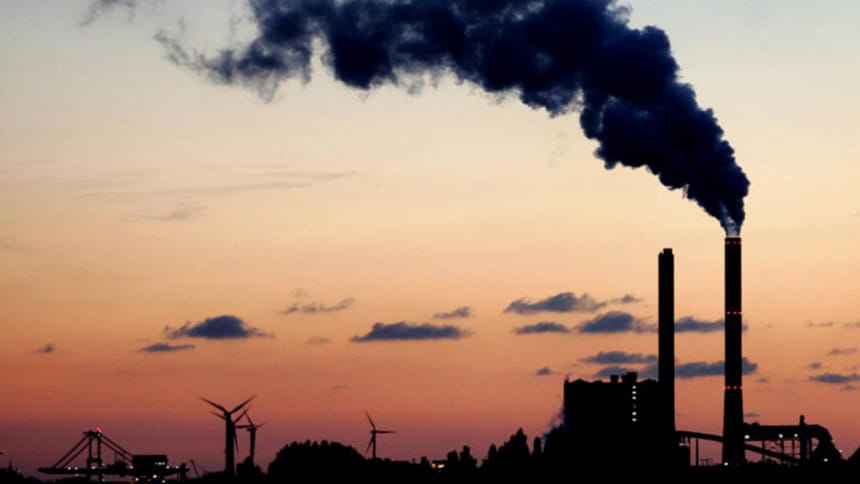Carbon credits like ‘printing money’

The vast majority of carbon credits generated by Russia and Ukraine did not represent cuts in emissions, according to a new study.
The authors say that offsets created under a UN scheme "significantly undermined" efforts to tackle climate change.
The credits may have increased emissions by 600 million tonnes.
In some projects, chemicals known to warm the climate were created and then destroyed to claim cash.
As a result of political horse trading at UN negotiations on climate change, countries like Russia and the Ukraine were allowed to create carbon credits from activities like curbing coal waste fires, or restricting gas emissions from petroleum production.
Under the UN scheme, called Joint Implementation, they then were able to sell those credits to the European Union's carbon market. Companies bought the offsets rather than making their own more expensive, emissions cuts.
But this study, from the Stockholm Environment Institute, says the vast majority of Russian and Ukrainian credits were in fact, "hot air" - no actual emissions were reduced.
They looked at a random sample of 60 projects and found that 73% of the offsets generated didn't meet the key criteria of "additionality". This means that these projects would have happened anyway without any carbon credit finance.
"Some early projects were of good quality, but in 2011-2012, numerous projects were registered in Ukraine and Russia which had started long before and were clearly not motivated by carbon credits," said Vladyslav Zhezherin, a co-author of the study.
"This was like printing money."
According to the review, the vast majority of the offset credits went into the European Union's flagship Emissions Trading Scheme. The authors estimate these may have undermined EU emissions reduction targets by 400 million tonnes of CO2, worth over $2bn at current market prices.
Unlike the Russian and Ukrainian projects, similar offsetting plans in Poland and Germany were said to meet very strict criteria.
"We were surprised ourselves by the extent, we didn't expect such a large number," co-author Anja Kollmuss told BBC News.
"What went on was that these countries could approve these projects by themselves there was no international oversight, in particular Russia and the Ukraine didn't have any incentive to guarantee the quality of these credits."
Because Germany and Poland had tougher emissions targets to meet, they were very careful with their certificates. This wasn't the case in Russia and the Ukraine.
One part of the larger review has been published in the journal Nature Climate Change.
It concerns the activities of projects that made money from the removal of chemicals HFC-23 and sulphur hexafluoride, which add significantly to global warming.
They found that, in 2011, all three projects in the study significantly and simultaneously ramped up the amount of the chemicals they were destroying.
"As researchers we can not prove the fraud, we can just point to the facts so in the HFC case at the moment when they could gain credits they immediately increased production of this greenhouse gas in order to destroy them, and that lead to them getting many more credits than if they had produced it like they did before," said Anja Kollmuss.
Experts familiar with the Russian carbon projects said that there had been longstanding and well acknowledged issues with the destruction of chemicals for carbon credits. This had been seen in China for several years.
Michael Yulkin, from Russia's Environmental Investment Centre rejected the idea that many of these Eastern projects broke the rules.
"That's just not true," he told BBC News.
"All the projects have been validated and the additionality has been proved - it was all following the rules and if the rules allowed them to be in, so you have them in."
Yulkin pointed out that the projects were no longer an issue. The EU emissions trading scheme no longer accepted the credits - and Russia was not taking part in the next commitment period of the Kyoto Protocol.
The authors of the study argue that lessons must be learned for any future market mechanisms that are incorporated into a new global agreement on climate change, expected to be signed later this year at a conference in Paris.
"In future, we need to do better and we can do better, but the devil will be in the detail and tighter controls will be needed," said James Wilde from the Carbon Trust.
"If firms are to invest at scale driven by a price for carbon, they need to know that the schemes setting this price in future will be robust and survive for the lifetime of investments."

 For all latest news, follow The Daily Star's Google News channel.
For all latest news, follow The Daily Star's Google News channel. 



Comments